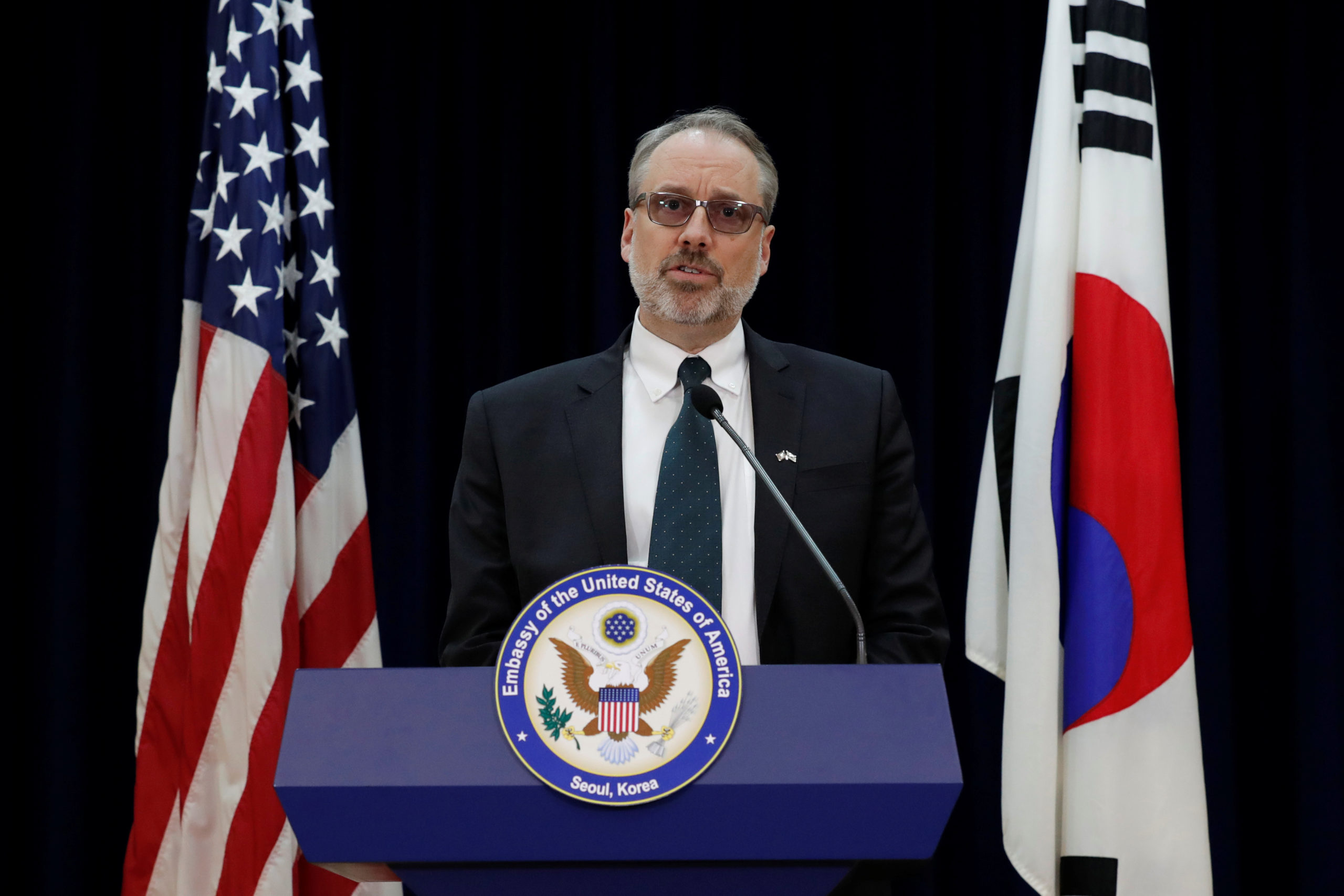Future of Arctic diplomacy still unclear, says outgoing US Arctic coordinator
Outgoing U.S. Arctic coordinator Jim DeHart also said the White House was crafting an updated national strategy for the region.

It remains unclear how the U.S. will continue to collaborate with other members of the Arctic 7 while official work on the Arctic Council is paused, the highest-ranking Arctic diplomat for the U.S., Jim DeHart, said in an exclusive interview with ArcticToday.
The U.S. joined six other Arctic nations in early March for a historic pause of the Arctic Council’s work and condemned Russia’s invasion of Ukraine.
“Russia’s credit rating had been reduced to junk status, and I would say that that is not unlike Russia’s standing in the Arctic,” DeHart said.
The region’s commitment to cooperation and rules-based order has kept it peaceful, but the Arctic Council was built on principles of sovereignty and territorial integrity, he said. “When Russia violates those principles so outrageously in another part of the world, we have to take that really seriously in the Arctic as well, because principles don’t stop at borders.”
There was “easy” consensus on the decision to temporarily stop the work, DeHart said. But the so-called “Arctic 7” nations (the seven Arctic Council members other than Russia) were careful to say the work is temporarily paused, rather than withdrawing from or reconstituting the membership of the council.
[Arctic Council nations are ‘pausing’ work after Russia’s invasion of Ukraine]
The Arctic 7 will likely continue collaborating unofficially on some of the key issues facing the region, though the extent to which they work together as a group isn’t clear yet.
“We’re going to have to figure that out together, as like-minded partners in the council, how to move forward in a way that will sustain cooperation,” he said. “But we have more deliberations we need to undertake with our close partners before we make any decisions there.”
Before Russia’s invasion of Ukraine, the U.S. was concerned about Russian military activities in the Arctic, including opaque military exercises in the region, GPS jamming of Arctic neighbors that affected civilians, and what the U.S. says is the unlawful regulation of the Northern Sea Route.
The Biden administration still wants to keep the region peaceful and low-tension, but they also remain committed to working with allies, NATO countries, and NORAD “to address whatever threats that could arise.”
While the focus is now turned to Russia, China’s presence in the Arctic has also been a concern for the U.S.
China has been involved in “critical infrastructure,” including telecommunications, ports, and airfields, and conducted scientific missions in the North that are “clearly not entirely about pure science, but also potentially laying the groundwork for them to be involved in the Arctic militarily in the future,” DeHart said.
While the U.S. isn’t opposed to all Chinese investment, it will insist on transparency and on adherence to rules-based order, he said.
Collaboration with Arctic nations has been an important part of the U.S. approach to the Arctic. Opening the consulate in Nuuk, Greenland, in June 2020 “was one of the smartest things we’ve done,” allowing U.S. diplomats to work directly with communities “that would otherwise be really difficult to reach,” he said.
How the U.S. will treat nations like Russia and China moving forward will be included in an updated national strategy for the Arctic, to be released by the White House in the next few months. In addition to geopolitics, the strategy will support investment in the region.
“As we transition as a nation away from oil and gas, we’ve got to make sure that we’re providing new opportunities to people that live in the region, including our own citizens,” such as the exploration of critical minerals that are aligned with climate change goals, DeHart said. That could include efforts such as those of a mining company that recently announced plans to explore in Greenland for nickel, copper, cobalt, and platinum to create batteries for electric vehicles.
Recent federal funding for the Nome port expansion is a good example of an investment that benefits local communities and national interests simultaneously, he said.
This approach signals a focus on softer forms of security in the Arctic to strengthen the U.S. standing in the region.
“You can’t be at your maximum effectiveness overseas if you’re not also strong at home,” DeHart said. “And if you are effective overseas, you’ll bring the benefits back home.”
The Arctic is now widely seen as a region of strategic importance and will continue to receive a high level of attention in Washington, he said.
“Nobody has to make the case anymore that the Arctic is important,” DeHart said. “In the past, we sometimes wavered in our attention from administration to administration, but I don’t see that happening anymore.”
DeHart will soon end his two-year rotation as Arctic coordinator at the U.S. State Department, but he says the momentum will carry forward as the Arctic now ranks higher among U.S. domestic and international priorities.
His successor has not been announced yet.
A recent push by the Arctic Caucus in the U.S. Senate to create a U.S. Arctic ambassador position has stalled out for now, but U.S. Senators Lisa Murkowski, a Republican from Alaska, and Angus King, an Independent from Maine, led colleagues recently to raise the issue again in a letter to U.S. Secretary of State Antony Blinken.
The U.S. is the only Arctic nation without an Arctic ambassador.
“The messages from the [Capitol] Hill have been heard by our leadership and [they are] giving very close attention,” DeHart said. “We’re not ready yet to make any specific announcements in that respect, but I think they’ll come at the right time.”